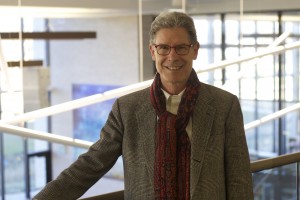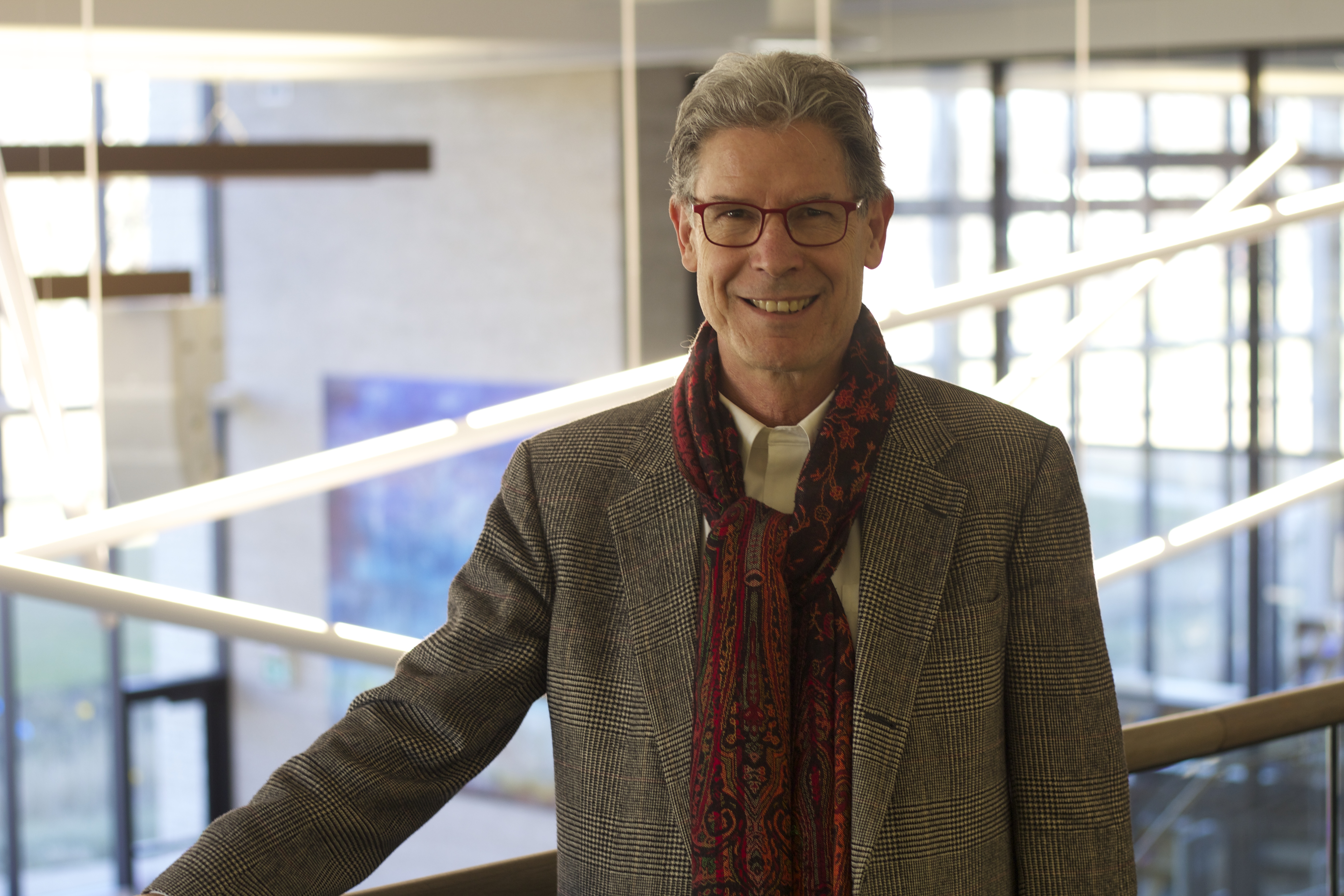 Dr. Gordon Matties, Professor of Biblical Studies and Theology, will retire at the end of December after more than 30 years teaching at CMU and one of its predecessor colleges, Mennonite Brethren Bible College.
Dr. Gordon Matties, Professor of Biblical Studies and Theology, will retire at the end of December after more than 30 years teaching at CMU and one of its predecessor colleges, Mennonite Brethren Bible College.
What do you love about your work here?
I love my colleagues and the students. I love that we worship together regularly. All of us are involved in a project of formation. We—faculty, staff, and students—are interested in becoming the kinds of human beings God intends for us to be: those who love beauty, goodness, and truth wherever those might be found; who long for healing, hope, and transformation in our world; and who are learning to imagine what living into God’s vision for a new heaven and a new earth might look like.
What are you teaching right now that most excites you?
Because I love movies and enjoy reflecting critically on the experience of watching movies, I continue to appreciate the course Film, Faith, & Popular Culture. I think movies have a unique capacity to offer us windows into the human condition and hold up mirrors of our joys and struggles. We see light refracted through the prism of particular stories into the colorful variety of human experience. Movies draw us deeply into the worldview questions: Where are we? Who are we? What’s wrong? Is there a remedy?
What are you researching and writing?
Recently I contributed an essay to A University of the Church for the World: Essays in Honour of Gerald Gerbrandt. The essay’s title is “Slow Food: Feasting Sustainably on Scripture.” I’m thinking about developing the idea of that essay into a book-length project. It has to do with what we expect to get from our reading of Scripture. I advocate for patient attentiveness, in contrast to the fast food approach to Scripture that assumes there’s always something in it for me on my terms now. It’s a project on biblical spirituality that focuses on ways of becoming formed slowly by Scripture.
What you are reading for enjoyment?
Besides the excellent articles posted by friends on Facebook and The Globe and Mail, I am reading Barkskins by Annie Proulx. It’s about the early settler and indigenous contact, the beginning of the global lumber industry, and the decimation of the world’s forests. I’m also reading Very Married: Field Notes on Love and Fidelity by Katherine Willis Pershey, Rumours of Glory: A Memoir by Bruce Cockburn, The Inner Voice of Love by Henri Nouwen, and You Are What You Love: The Spiritual Power of Habit by James Smith.
Where or how do students give you hope?
So many of our students are activists. They want to live out their dreams and work to change the world. They aren’t afraid of taking risks. They are impatient with thinking without doing.
What saying or motto inspires you?
In my first few years of teaching, I developed this motto: Nurturing the Mind; Minding the Heart; Mending the World. I’ve now got it tacked up on the bulletin board beside my office door. It’s my philosophy of education in a nutshell. I developed the motto after reading Parker Palmer’s book To Know as We are Known: A Spirituality of Education, which I recommend highly.

